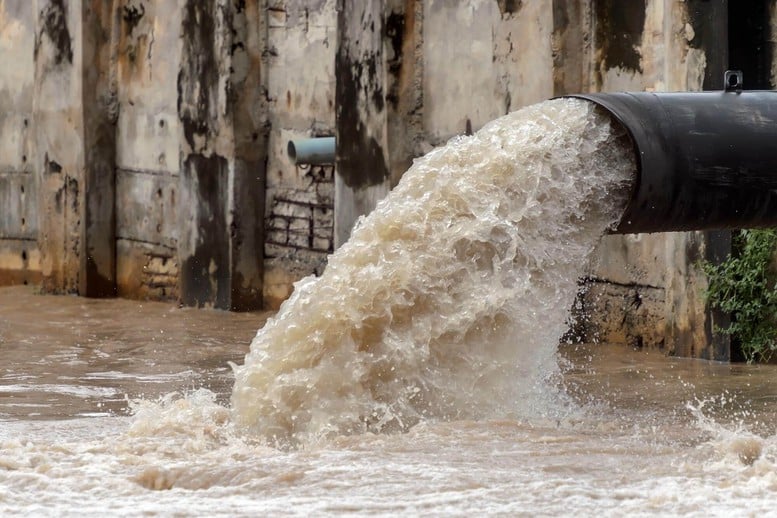
The Ministry of Finance proposed to regulate 9 cases of exemption from environmental protection fees for wastewater.
The Ministry of Finance said that in Article 5 of Decree No. 53/2020/ND-CP regulating environmental protection fees (EPF) for wastewater, EPF is exempted for: Water discharged from hydropower plants; seawater used for salt production; domestic wastewater of: Organizations, households, individuals in communes, organizations, households, individuals in wards and towns without clean water supply systems, households and individuals not doing business in wards and towns with clean water supply systems that exploit water for use; cooling water (according to the law on EP) not directly exposed to pollutants, with separate drainage; wastewater from natural rainwater overflow; Wastewater from fishermen's fishing vessels and wastewater from centralized wastewater treatment systems in urban areas according to legal regulations on drainage and wastewater treatment must meet environmental technical standards and regulations before being discharged into receiving sources.
Regarding the exemption of water discharged from hydropower plants , according to the Ministry of Finance, in reality, water discharged from hydropower plants includes many sources such as: Water through turbines running generators; domestic wastewater; water leaked from oil-contaminated machinery and equipment rooms (usually managed according to regulations on hazardous waste)... Therefore, to clarify which types of wastewater from hydropower plants are exempt from fees, the Ministry of Finance proposes to amend this provision in the draft Decree as follows: "Water discharged from hydropower plants (dams, lakes) (excluding wastewater from mechanical, technical, organizational, and other operational activities of the plant that come into contact with pollutants)."
Regarding the exemption of domestic wastewater for organizations, households and individuals in communes and areas without clean water supply systems , according to the Ministry of Finance, the exemption of environmental protection fees for domestic wastewater in all communes, especially communes bordering wards, towns, cities (old)... is not suitable in the current period, because the socio -economic conditions in these areas have changed and developed more than in the previous period. Currently, the Party and the State are reorganizing the local state apparatus according to a 2-level model that will come into operation from July 1, 2025 (specifically, the whole country will only have 687 wards, 2,621 communes and 13 special zones, a total of 3,321 commune-level administrative units), leading to the administrative boundaries at this level being much larger than before.
Clause 1, Article 10 of the Law on Fees and Charges stipulates that subjects exempted from or reduced from fees include: poor households, the elderly, people with disabilities, people with revolutionary contributions, ethnic minorities in communes with particularly difficult socio-economic conditions and a number of special subjects as prescribed by law.
In Decree No. 31/2021/ND-CP dated March 26, 2021 of the Government detailing and guiding the implementation of a number of articles of the Investment Law, including promulgating the List of areas with particularly difficult socio-economic conditions at the commune level that enjoy investment incentives (incentives for corporate income tax, import tax, etc.).
In Decision No. 33/2020/QD-TTg dated November 12, 2020 of the Prime Minister on criteria for delimiting ethnic minority and mountainous areas according to development level, accordingly, "people residing in particularly difficult areas (villages)" are entitled to preferential treatment from the State.
Therefore, to conform to the actual situation and the provisions of the Law on Fees and Charges mentioned above, the Ministry of Finance proposes to revise the regulations on exemption of domestic wastewater fees for organizations, households and individuals in communes and areas without clean water supply systems in the direction of: Exemption of environmental protection fees for domestic wastewater of organizations, households and individuals in communes with particularly difficult socio-economic conditions according to the provisions of investment law and organizations, households and individuals in areas without clean water supply systems.
About free for coolant
Pursuant to previous legal regulations on environmental protection (before the Law on Environmental Protection 2020), Decree 53/2020/ND-CP stipulates: "Cooling water (according to legal regulations on environmental protection) does not directly contact pollutants and has a separate drainage system."
Decree No. 40/2019/ND-CP dated May 13, 2019 of the Government amending and supplementing a number of articles of the decrees detailing and guiding the implementation of the 2014 Law on Environmental Protection stipulates: "Cooling water is water used for the purpose of cooling equipment and machinery in the production process without direct contact with raw materials, fuels, and chemicals used in production, business, and service stages".
Decree 08, amended and supplemented by Decree 05, stipulates: "Heat exchange water is water used for the purpose of cooling (cooling water) or heating equipment and machinery during the production process, without direct contact with raw materials, materials, fuels, and chemicals used in the production stages".
In addition, in recent times, some large-scale thermal power plants have used heat exchange water (cooling water) for reuse in the treatment of exhaust gas, but there is no separate outlet, leading to cooling water being mixed with wastewater before being discharged into the environment. This leads to difficulties in determining the volume of wastewater for charging. Because cooling water is taken from natural surface water sources, it often has a certain level of pollution parameters when used to treat exhaust gas, but still calculating this level creates a burden for the plant.
Therefore, to be consistent with the provisions of the law on environmental protection, the Ministry of Finance proposes to stipulate in the draft Decree in the direction: Heat exchange water (cooling water) according to the provisions of the law on environmental protection.
Regarding the exemption of wastewater from the centralized wastewater treatment system of urban areas that has been treated to meet environmental standards and regulations, according to the Ministry of Finance, the Law on Environmental Protection (Clause 2, Article 6) has a provision requiring the owner of the wastewater discharge facility to treat the wastewater to meet environmental technical standards before discharging. In case the wastewater is not treated or is not treated to the required standards and is discharged into the environment (a prohibited act), it will be handled for violating environmental protection.
Thus, in this case, the Urban Centralized Wastewater Treatment System is of course responsible for treating wastewater to meet the prescribed standards, not for treating it to meet the standards to be exempted from environmental protection fees for wastewater.
In fact, the centralized drainage and wastewater treatment systems in urban areas invested by provinces/cities from the budget or local drainage units assigned to implement investment projects from capital mobilized outside the budget or mixed (domestic or foreign loans from international financial institutions) do not collect or collect fees according to the service price mechanism decided by the Provincial People's Committee or approved the price according to the provisions of the Government's Decree on drainage service prices. In case the owner of the urban drainage and wastewater treatment system has not collected fees for drainage services, organizations, households and individuals discharging wastewater into this system still pay environmental protection fees for domestic wastewater on the monthly clean water bill. In case the owner of the Urban Drainage and Wastewater Treatment System is collecting drainage service fees, organizations, households and individuals discharging wastewater into the system must pay this service fee on the monthly clean water bill collected by the Water Supply Company (the only difference is the name of the fee).
Thus, to comply with the Law on Environmental Protection and avoid double collection, the Ministry of Finance proposes to revise the fee-free regulation for wastewater from the Centralized Wastewater Treatment System in urban areas in the direction of: Removing the regulation that wastewater must be treated to meet environmental standards and technical regulations in the draft Decree. At the same time, adding the exempted subjects are wastewater from the Drainage and Wastewater Treatment System (domestic) of high-rise apartment buildings, apartment clusters, concentrated residential areas (new urban areas)... which is a mandatory investment item according to the provisions of the Law on Environmental Protection carried out by the investors of these projects to ensure consistency and avoid problems.
For wastewater from mineral exploitation facilities
Currently, in addition to the type of sand and gravel mining in riverbeds, mineral mining activities often take place on the natural geographical surface (open-pit mining) or underground (underground mining), mainly generating natural rainwater runoff, this type of wastewater must be collected and drained separately according to the provisions of the Law on Environmental Protection, Decree 53 also stipulates exemption of fees for rainwater runoff. Mineral mines are commonly distributed in mountainous areas, areas far from urban centers and residential areas.
Mineral exploitation enterprises are currently required to pay environmental protection fees for mineral exploitation (this fee also takes into account the wastewater caused by mineral exploitation (if any)). For mineral exploitation activities such as sand, gravel, pebbles, grit... which are typically carried out in rivers, streams, at sea... it is impossible to determine the wastewater flow due to the mixing factor in the natural water environment.
Therefore, to avoid the case where the same activity has an impact on the environment but is subject to two fees at the same time (environmental protection fee for wastewater and environmental protection fee for mineral exploitation), the Ministry of Finance proposes to supplement the provisions in the draft Decree in the direction of exempting fees for "Wastewater from mineral exploitation activities (except for mineral production and processing facilities)."
For reused wastewater
In fact, some production and processing activities such as: chemical production, fertilizer production, livestock activities, other activities have useful wastewater or wastewater that has been collected and treated to meet environmental standards for use in agriculture, watering urban green trees, washing and cleaning roads and campuses. However, Decree 53/2020/ND-CP does not stipulate exemption from fees, while the law on environmental protection has regulations to encourage the reuse of this type of wastewater to save and use water resources effectively, limiting negative impacts on the environment (according to the circular economic model). Specifically:
Clause 3, Article 47 of Decree 08/2022/ND-CP stipulates: Encouraging the reuse of waste, including wastewater from production and processing activities, applying cleaner production technology, energy saving, industrial symbiosis and circular economy.
Clause 3, Article 74 of Decree 08/2022/ND-CP stipulates: Wastewater is reused when it meets environmental protection requirements and meets specialized standards and regulations appropriate to the purpose of water use. Wastewater when transferred for reuse must meet the requirements in Clause 4 of this Article. The responsibilities of ministries and ministerial-level agencies in regulating and guiding the reuse of wastewater are specifically as follows: ...
Based on the above provisions, wastewater from production and processing activities that is reused must meet the conditions prescribed by specialized laws and it is necessary to encourage enterprises to actively use recycled and reused wastewater, promote the development of green economic models, and use water resources economically and effectively. Therefore, the Ministry of Finance submitted to the Government additional provisions in the draft Decree in the direction of exempting fees for "Wastewater from production and processing activities that is reused according to the provisions of environmental laws."
9 cases of fee exemption
In the draft, the Ministry of Finance proposes to exempt environmental protection fees for wastewater in the following cases:
1. Water discharged from hydroelectric plants (dams, lakes) (excluding wastewater from mechanical, technical, organizational and other operational activities of the plant that come into contact with pollutants).
2. Seawater used for salt production is discharged.
3. Domestic wastewater of organizations, households and individuals in communes with particularly difficult socio-economic conditions according to the provisions of investment law; wastewater of organizations, households and individuals in areas without clean water supply systems or self-exploiting water for use.
4. Heat exchange water (cooling water) according to environmental protection regulations.
5. Natural rainwater overflow.
6. Wastewater from fishing vessels of fishermen.
7. Wastewater from centralized wastewater treatment systems in urban areas according to legal regulations on drainage and wastewater treatment and wastewater from drainage and wastewater treatment systems (domestic) of high-rise apartment buildings, apartment clusters, and concentrated residential areas (new urban areas) according to legal regulations on environmental protection.
8. Wastewater from mineral exploitation activities (except mineral production and processing facilities).
9. Wastewater from production and processing activities is reused in accordance with environmental laws.
Please read the full draft and give your comments here.
Wisdom
Source: https://baochinhphu.vn/9-truong-hop-mien-thu-phi-bao-ve-moi-truong-doi-voi-nuoc-thai-102250807171935982.htm





![[Photo] Prime Minister Pham Minh Chinh chairs a meeting on housing policy and the real estate market.](https://vphoto.vietnam.vn/thumb/1200x675/vietnam/resource/IMAGE/2025/11/11/1762838719858_dsc-2107-jpg.webp)

![[Photo] Chu Noodles - the essence of rice and sunshine](https://vphoto.vietnam.vn/thumb/1200x675/vietnam/resource/IMAGE/2025/11/11/1762846220477_ndo_tl_7-jpg.webp)
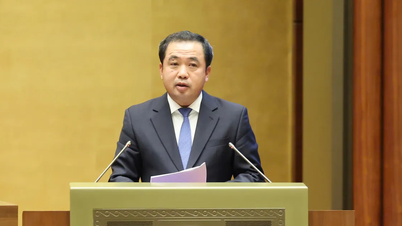

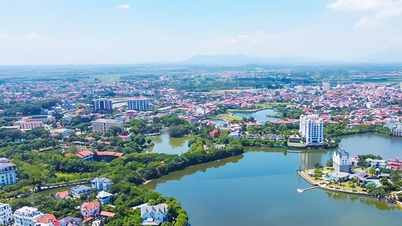

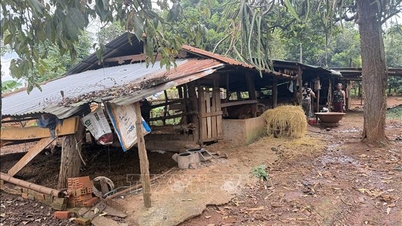

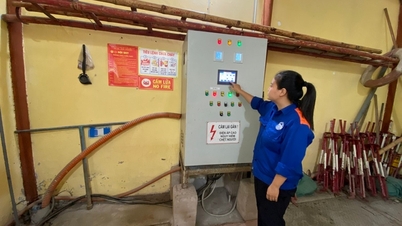












































































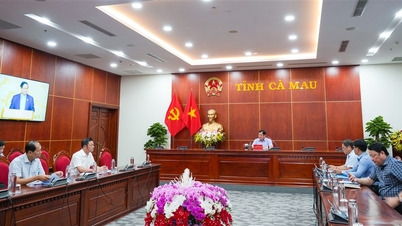









![Dong Nai OCOP transformation: [Article 4] Reaching national standard products](https://vphoto.vietnam.vn/thumb/402x226/vietnam/resource/IMAGE/2025/11/11/1762825820379_4702-cac-san-pham-trai-cay-chung-nhan-ocop-nongnghiep-174649.jpeg)


![Dong Nai OCOP transition: [Article 3] Linking tourism with OCOP product consumption](https://vphoto.vietnam.vn/thumb/402x226/vietnam/resource/IMAGE/2025/11/10/1762739199309_1324-2740-7_n-162543_981.jpeg)






Comment (0)